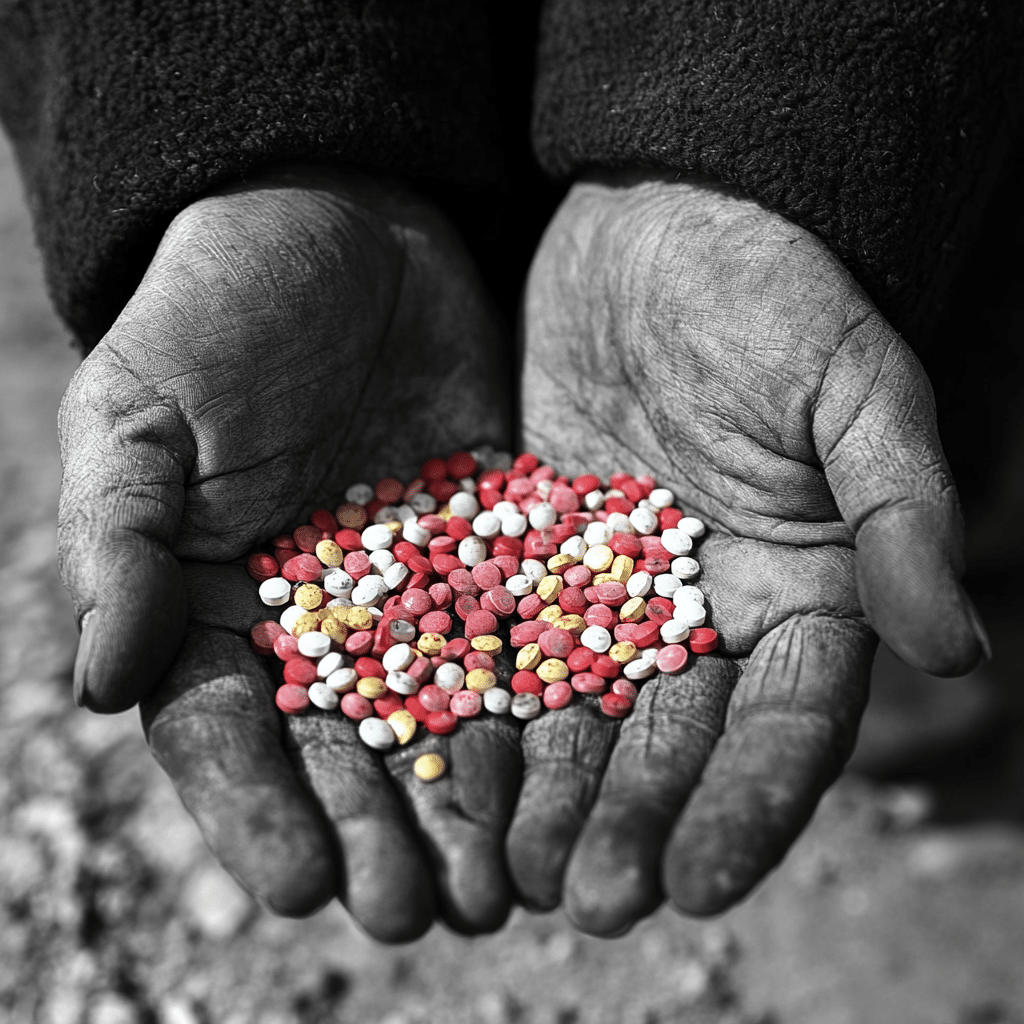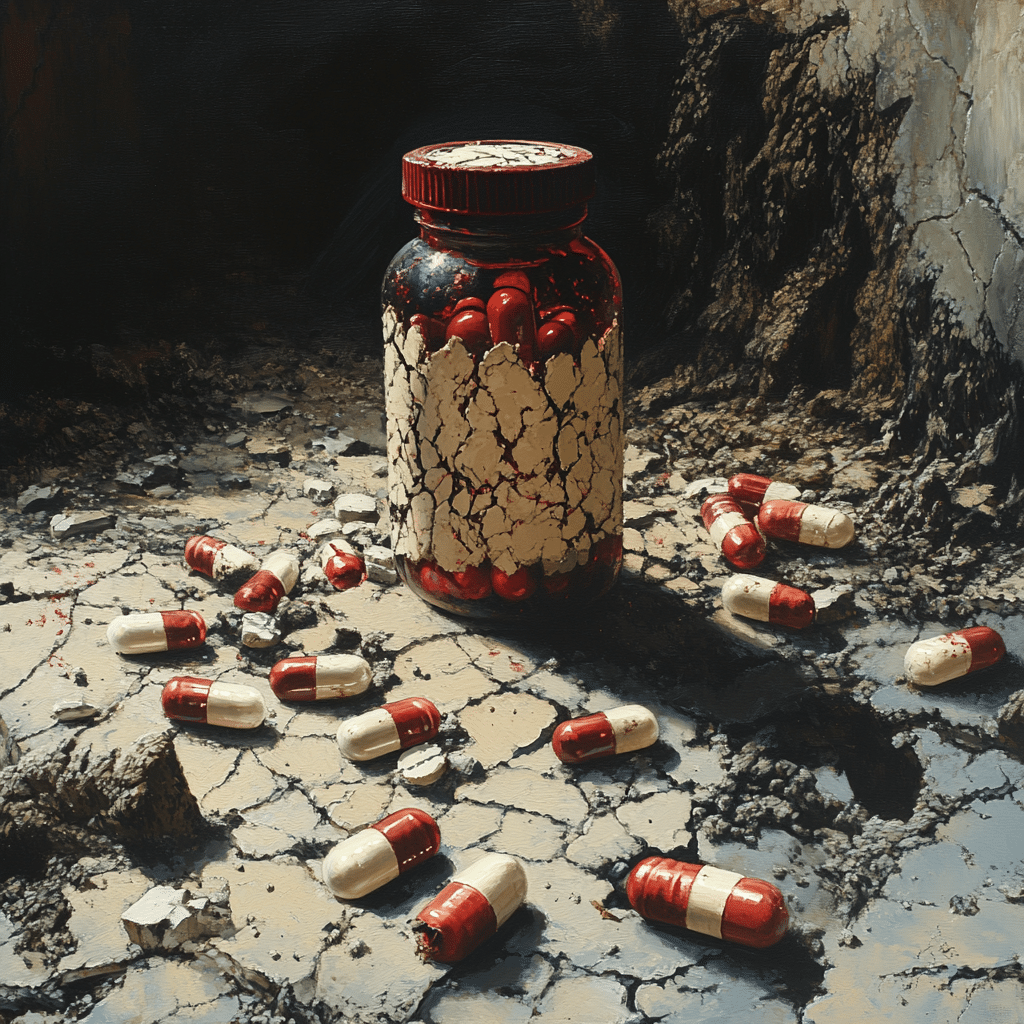The opioid crisis has taken a devastating toll on American families over the last few decades. With 564,000 lives lost to opioid overdose between 1999 and 2020, the impact reverberates far beyond just the individuals who suffer. Families grapple with profound loss, emotional turmoil, and financial strain, often feeling trapped in a cycle of despair. Children, especially, bear unique emotional burdens when a parent struggles with addiction, facing feelings of neglect and confusion exacted by the substance that has woven itself into the fabric of their household.
The statistics are sobering and the stories heart-wrenching. Families endure not only the immediate pain of loss but the ongoing ramifications that ripple through their lives. The emotional toll of addiction can’t be overstated—the anxiety, depression, and feelings of inadequacy can be overwhelming, especially for children. Children who watch helplessly as addiction takes hold of a parent find themselves in a precarious emotional landscape, filled with uncertainty and fear.
Such harrowing experiences emphasize the crucial need for support systems and resources for those affected. At Mothers Against Addiction, we recognize the enormous challenges faced by families caught in this crisis. It’s our mission to empower parents and provide them with the tools necessary to understand addiction, find hope, and foster resilience in their families, despite the heart-wrenching experiences caused by the opioid crisis.
The Ripple Effect: Top 7 Consequences of the Opioid Crisis on Families
The National Alliance on Mental Illness (NAMI) states that families dealing with addiction often confront rising rates of anxiety and depression. Children, in particular, might feel abandoned, struggling academically and emotionally due to the turmoil around them. A chaotic home life can deeply impact a child’s cognitive functions, further compounding their distress.
The opioid crisis significantly contributes to family instability. As parents grapple with addiction, many lose custody of their children or become incapable of providing stable homes. Kids often end up in foster care or living with relatives, creating a ripple effect that disrupts family ties and support systems.
Children of addicted parents face a higher risk of developing substance use disorders themselves. The American Society of Criminology highlights this sobering reality, emphasizing the importance of early intervention and support to disrupt this cycle of addiction.
The economic burdens of addiction can shatter family finances. Mounting costs related to medical care, lost income, and legal troubles generate a cycle of poverty that can feel inescapable. The cost of addiction goes far beyond the individual; it ensnares the entire family in a web of financial instability.
Addiction often reforms family dynamics under immense pressure. The roles within a household can shift dramatically; caregivers may become caregivers of their addicted family members, leading to resentment and further strain in relationships. Families often find it challenging to maintain healthy connections when addiction takes center stage.
Many children in families affected by the opioid crisis undergo emotional trauma, often resulting in neglect. Despite resources such as Adult Children of Alcoholics, the impacts can be long-lasting and deeply felt, shaping their future relationships and emotional health.
It’s clear that families urgently need ways to access support. Community initiatives, such as those driven by Mothers Against Drunk Driving, provide advocacy and educational resources to help families grappling with these struggles, stressing the importance of prevention and recovery strategies.

Hope Emerging from the Crisis: Resources and Support
Despite these sobering realities, we see threads of hope woven through community-driven support systems. Organizations like NAMI and MADD are stepping up to deliver invaluable resources and networks for families directly impacted by addiction. Through community engagement and support, we can foster environments conducive to healing and resilience.
The Role of the 12 Steps of Alcoholics Anonymous
The 12 Steps of Alcoholics Anonymous have emerged as crucial pathways toward recovery. This structured framework encourages open dialogues about addiction, creating supportive spaces for families. These steps can empower individuals in recovery while promoting accountability among family members, building a foundation of understanding essential for healing.
Community Initiatives Focused on Healing
Many communities are forging partnerships with mental health experts to address addiction alongside related mental health struggles. By integrating family therapy into recovery programs, these initiatives facilitate the kind of healing that can help mend the wounds inflicted by addiction. Families are encouraged not only to work on individual recovery but also to strengthen their bonds through shared experiences of vulnerability and healing.
Stories of Resilience: Real Families Finding Hope
As we step into 2024, the spirit of resilience shines brightly in stories emerging from our communities. Take Sarah, for instance—a mother who bravely faced the loss of her son to opioid addiction. Rather than pull back into her grief, she founded a community outreach program, becoming a beacon of hope for other parents navigating similar pain. Her voice resonates with countless families who feel lost in the chaos.
Dylan’s journey is another powerful example. After battling his own struggles with addiction and engaging with Alcoholics Anonymous, he emerged not just as a survivor but as a mentor. Today, he dedicates his time to mentoring youth in recovery programs, showing them that life after addiction can lead to renewed purpose and hope. Both Sarah and Dylan’s stories remind us that even amid darkness, light can break through.

Innovative Approaches to Healing and Prevention
The opioid crisis demands innovative responses. Thankfully, technology is lending a hand; virtual therapy and online support groups are expanding access to crucial mental health resources. Families can connect from the comfort of their homes, fostering relationships that might otherwise be strained by geographical barriers.
Equally important, increased investment in educational programs helps younger generations understand the risks posed by opioid misuse. Programs focused on prevention from an early age promote healthier behaviors, equipping kids with the knowledge to steer clear of drugs and maintain resilience against addiction.
Wrapping Up: A Path Forward for Families
While the opioid crisis presents challenges, it’s heartening to see families and communities banding together to reclaim their lives. Through a synergistic approach that incorporates mental health resources, community connections, and inspiring narratives of hope, families can navigate the turbulent aftermath of addiction. Every step forward opens doors to healing, stirring hope in the hearts of those impacted and lighting the way toward lasting change.
If you’re looking for support or resources, visit Mothers Against Addiction to connect with us and others who understand the journey you’re on. Together, we can foster a future where families thrive, not just survive.
The Opioid Crisis: Facts, Figures, and Hope
Dispelling Myths and Shining a Light on Truths
The opioid crisis has swept across the nation, leading to a staggering toll on families. Did you know that around 10 million Americans misuse prescription opioids annually? That means that in a state like Nevada, where the population is relatively low, the impact still hits hard, as communities grapple with addiction. With the Federal Emergency management agency stepping in to help areas devastated by overdose rates, a sense of urgency hangs in the air. It’s a reminder that addiction can affect anyone, regardless of background or circumstance, similar to the varied stories behind Taylor Swift And Traviss recent headlines, which captivates millions but may mask deeper struggles experienced by many.
Understanding the Mental Health Link
Interestingly, the link between addiction and mental health often highlights certain psychological symptoms that can exacerbate crises. Some may even display psychopath Symptoms that hinder their recovery journey. Research shows that individuals battling addiction might not only struggle with substances but also face underlying mental health issues. And while conversations can feel heavy, there’s a growing trend toward embracing alternatives like cannabis as a therapeutic option—yet this approach comes with its own set of challenges and considerations.
Finding Comfort in Art and Community
Despite the darkness surrounding the opioid crisis, there’s hope within the artistic community. For example, many artists express their struggles through music, like the band Tool, whose lyrics in “Sober” resonate deeply with those affected. It proves that creativity can serve as an outlet for pain and a vehicle for understanding. Additionally, events and initiatives spearheaded by local organizations are essential—helping to cultivate a supportive environment, along with camps that promote cultural enrichment, akin to what’s happening with Culture Kings across cities.
In the face of adversity, families can support one another, finding solace and resilience in shared experiences, from the heart-wrenching stories of loss to the triumphs of recovery. Understanding the opioid crisis not only demands awareness but also compassionate engagement, fostering connections that pave the way for healing.





























